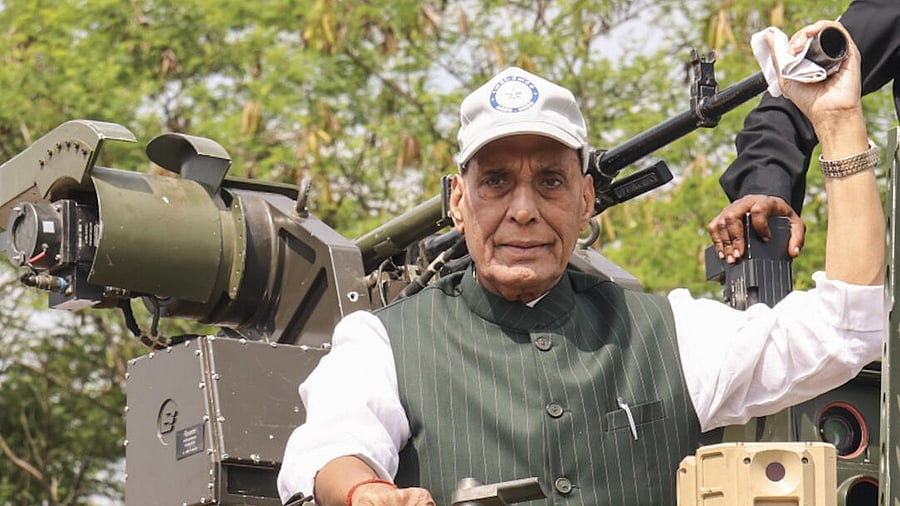
Defence Minister Rajnath Singh.
Credit: @SpokespersonMoD/X via PTI Photo
New Delhi: Defence Minister Rajnath Singh on Friday once again alerted the Indian Army on the “invisible enemy” that can strike suddenly from space to cyberspace, asserting that soldiers need to embrace new technologies to thwart such attacks.
“Modern-day warfare is fought in invisible domains such as cyberspace, information, electronic disruption, and space control, What matters is quick decision-making and willpower of the soldiers along with adapting to the latest technological advancements,” the minister said addressing the Army Commanders Conference at Jaisalmer.
As a part of the process to equip the army with advanced warfare technologies, he inaugurated the first two Edge Data Centres at Konark Corps and Fire and Fury Corps.
By next year, all the 14 Corps of the Indian Army will have such data centres, which will explore new battlefield technologies that will work without a secure cyber network and poor connectivity zones as expected in a real battlefield, but would still give the military an edge over the enemy.
Rajnath also reviewed army exercise Thar Shakti that involves employment of new units like the Bhairav battalion and Ashni drone platoon, along with the latest technological assets inducted into the Indian Army for conduct of operations.
Following Operation Sindoor, the government has decided to have Ashni drone platoons in each of the 382 battalions of the Indian Army. Every platoon with 20-25 specially trained soldiers will be equipped with surveillance platforms and loitering munitions to keep an eye on the enemy.
It has also been decided to raise Bhairav light commando battalions – each with 250 soldiers with specialised gears - for swift strike capabilities along the border. The first five such units have been raised and the army plans to have 25 such battalions in the next six months.
Rajnath said while Operation Sindoor gave rise to a new strategic thinking that India would respond to any terrorist activity on its own terms, the military should never underestimate the adversaries and remain alert to deal with any eventualities.
Ahead of the winter season, he said India's readiness on northern borders would remain intact even as talks on de-escalation would continue.
“Ongoing talks and de-escalation steps have demonstrated a balanced and firm foreign policy of India. Our policy is clear that there will be dialogue and our readiness on the border will remain intact,” he said.
Rajnath and the army top brass carried out a comprehensive review of the security situation and the force's operational preparedness. The minister also visited forward areas like Tanot and Longewala near the Pakistan border.
